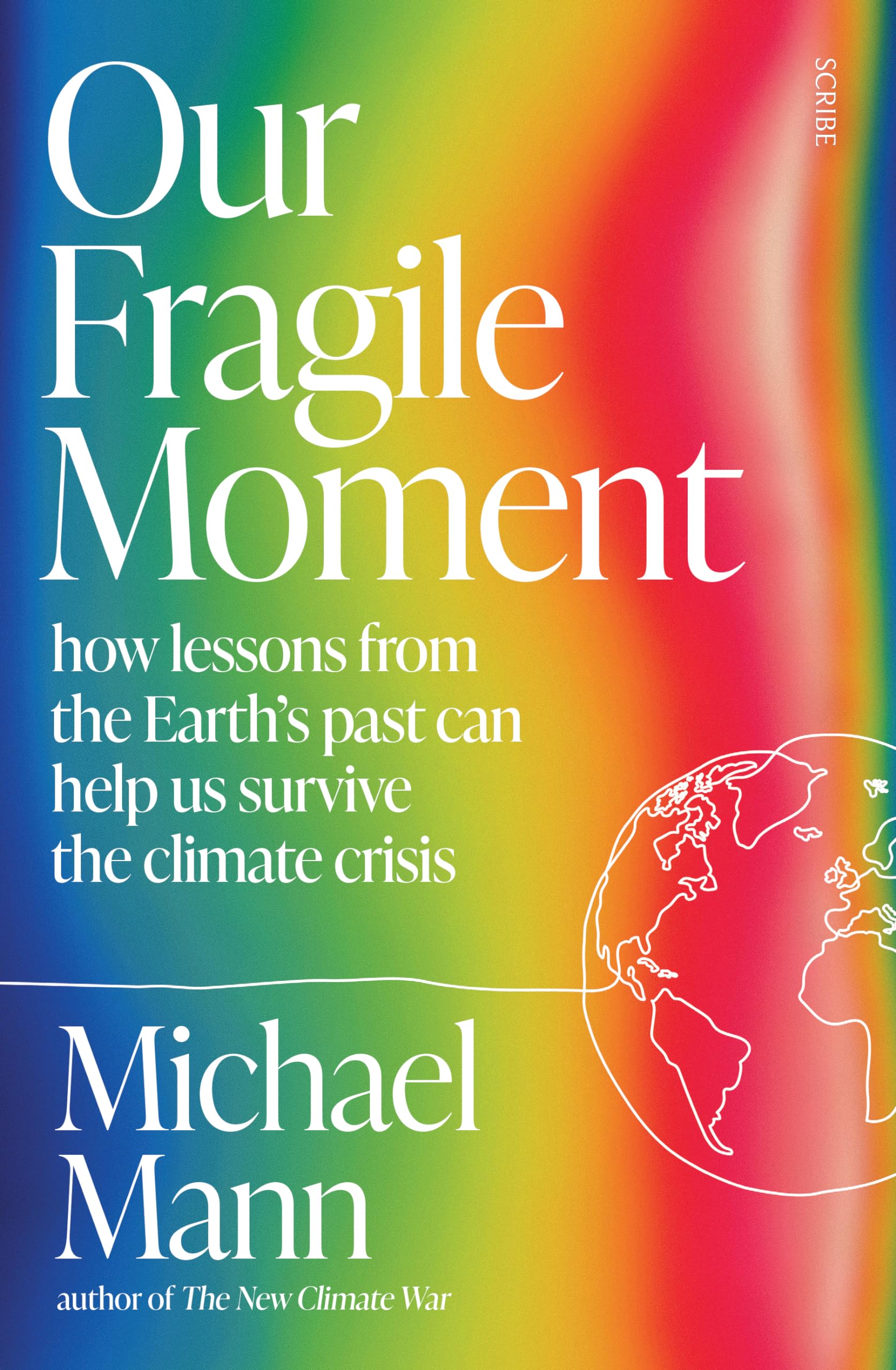



Full description not available
J**E
Essential reading on Climate Change
Very accessible writing style. Mann is a great communicator and the content is mind blowing. While you might be tempted to whizz through cover to cover, the detailed explanations require plenty of absorption. A must to negate the naysayers.
O**L
Making Greater Understanding of the Climate Crisis through the available Whole Earth History
Professor Mann's "Our Fragile Moment" allows complex, difficult climate science to be understandable to everyone with an open enquiring mind. It encourages strengths to continue along this road of positive expectations, and crucially provides the courage to talk to others and get them on board.
A**O
A book that everyone should read
I heard him on TV here in UK, the discussion was on global warming and he advertised his book. I have read it in a week, very nicely structured and with proper scientific evidence. I recommend reading it
M**Y
Appropriately titled…
Sadly, the facts one learns from this latest warning from the author are all too evident; climate is undeniably changing, its consequences have yet to be realised.
P**U
We are at the point of maximum human agency
Roughly, there are two independent ways to understand our climate transition: giant computer models of fluid dynamics and energy flows; and palaeoclimatology, which tries to see into the past to see how sensitive the Earth has actually been in the face of earlier shocks.This book is about the lessons from palaeoclimatology. Mann is a long-established expert (known for instance, for the hockey stick, co-founding the RealClimate website, and for a big recent libel victory against denialists).The core of the book is an entertaining history of Earth’s climate—how the system has coped with a series of violent shocks, from the collision that created the Moon, to runaway snowball planets, mass extinctions, and what triggered the evolutionary transitions that led to life on land, mammals and eventually us lot. It’s very accessible, but also willing to get into elegant explanations of hysteresis effects (turning the temperature dial up and down again doesn’t always get you back to where you started) and Lovelock’s Daisyworld model of how Gaia isn’t just handwaving nonsense.Threaded through all of this is a parallel book not about “facts”, but about science: how understanding has built up, where disagreements flared and, especially, how confident we can be in our current views. Popular science (usually written by non-experts) that fails to show us these error bars can be frustrating to read. It’s particularly important in such a contested subject, exposed to attack from denialists and doomers alike.Of course, Mann stands with the science, rejecting both those denialist and doomer sides as dead wrong—we are at a point of maximum human agency. Global pledges, if only they are held to, can keep the planet to +2 degrees Celsius; and there is still a (very narrow) pathway to +1.5.But there remains a gap between what is now pretty accurate temperature modelling overall, and what still seems like a systematic underestimation of extreme weather events. The idea that every +0.1 degree is worth fighting over is a clear conclusion.Lessons from palaeoclimatology do bring some good news. Mann rejects the idea that we are anywhere close to triggering a permafrost methane bomb, and is positive that Arctic sea ice and the polar bears can make it through. And as soon as humans stop pumping out greenhouse gases, global temperatures should rapidly stabilise, rather than keep rising. That will be nice to see.
J**R
Interesting history but with very little hope for our future
The climatic history was good but the prognosis for our future is depressing.
S**N
Essential Reading for Everyone Who Cares About Our Future
Our planet, the only one we have, has been around for 4.54 billion years (4,540,000,000,000 years). The very first proto-humans emerged around 2,000,000 years ago, and human civilisation (such as it is) has been around for under 6,000 years. Only for 0.0001% of the history of the Earth have modern humans been around. And look what we’ve achieved in that tiny, infinitesimal moment of our existence.Nature, modified by extra-planetary events including the varying power of the Sun, collisions with asteroids both large and small, has managed to create a sustainable world on which we have thrived. Until now.Humans are the only known life form that has managed to negatively alter the environment in which we, and all other life, currently exist.This book examines, in forensic detail, the history of our world. The author explains what changes have occurred during the formation and gradual settlement of our home to bring it to its current state of relative equilibrium. We, however, during the very short period since we began to industrialize our planet, have introduced such a state of instability that we now occupy a space that may very soon become impossible to live in for some plants and animals, and where large portions of our world may soon be uninhabitable for the human race.Michael Mann explains how we have come to this, how our influence has created what is elsewhere described as our climate emergency. But, as a scientist, he avoids the emotional aspects of predictions designed to cause panic and even a sense of defeatism by some people.He describes how it is neither too late to make the necessary changes nor inevitable that we destroy ourselves along with many thousands of other life forms.It is not an easy read, but it is fascinating and illuminating. I suggest you arm yourself with a small pad and a pen to list the many acronyms in full form. Michael Mann explains the full terms when initially introduced, but I confess I lost track of some of the full terms whilst reading.This is a book based entirely in science. It avoids opinion, both pessimistic and optimistic, instead delivering a neutral picture devoid of nightmare or complacency.There is no doubt some readers will find aspects of this extraordinary book difficult. Some will be tempted to skip certain passages. But if all readers fully read the final chapter, which provides an excellent summary, both comprehensive and relatively brief, well presented and giving an overall assessment of what is needed to prevent the worst of the excesses we face if we do nothing, there is a chance we may manage to more than merely survive this threatened emergency and actually continue to thrive here on the only planet we have.‘The impacts of climate change, no doubt, constitute an existential threat if we fail to act. But we can act. Our fragile moment can still be preserved.’ Michael Mann
Trustpilot
2 weeks ago
2 days ago